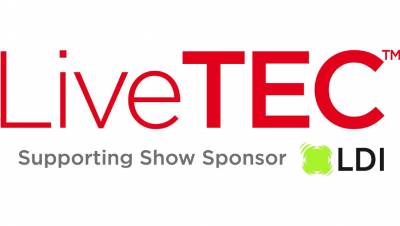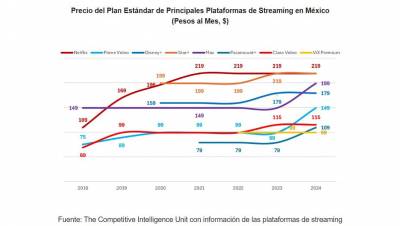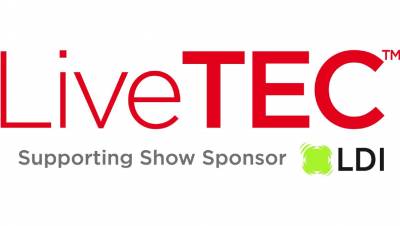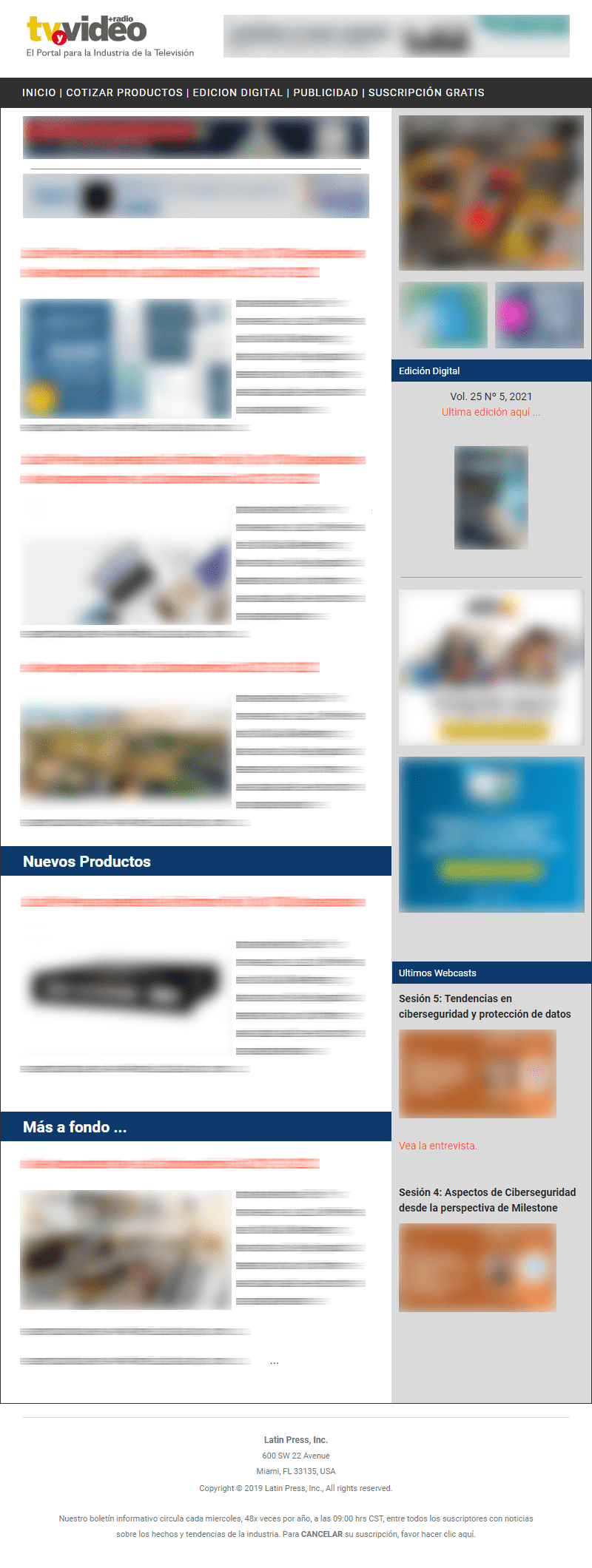 Government, justice and subscription television operators in Latin America, come together to face the growing phenomenon of piracy in the Pay-TV signal in our region through FTA set-top boxes.
Government, justice and subscription television operators in Latin America, come together to face the growing phenomenon of piracy in the Pay-TV signal in our region through FTA set-top boxes.
Richard Santa
The number of pay-TV subscribers in Latin America has been growing steadily in recent years. Two clear examples, according to Lamac's figures, are Argentina, which in 2012 rose by 7% and Chile, which in the last five years grew by 48%.
But not everything is rosy, because signal theft or piracy tarnishes good results and the problem grows as subscribers increase. And although this is a phenomenon that occurs all over the world, in our region it is greater compared to the reports of companies in Europe and the United States.
Natalia Iregui, director of Institutional Relations of Direc TV, explained that piracy in the subscription TV service is concentrated in two modalities: the illegal retransmission of audiovisual content and marketing with the use of unauthorized set-top box equipment to download free television.
"The "pirate" operators market their services in both cases with very low rates compared to legally authorized operators, among other causes because: those of the first modality do not pay taxes or compensation to the State for the illegal service they market, those of the second modality use networks and communication poles of third parties (operators who do not pay for the use) and do not pay rights author to programmers (signal holders – TV content)".
Over-the-counter
Piracy on subscription television begins with the over-the-counter of FTA (free to air) set-top boxes, which are used to capture the signal of free channels. But the problem starts when adulteration and unlocking of the encryption software to steal the signals that are encrypted occurs.
Fredy Corrales, deputy director of fraud control at UNE, commented that with adulterated set-top boxes some people create companies offering a satellite television service without contracts or monthly payments, only with a single payment.
Operators have identified that these pirate set-top boxes are mostly sold for rural areas, where it is difficult for cable television to arrive. In addition, as an added value to the purchase of the adulterated decoder, the buyer is given a web page through which he can learn how to manipulate the equipment to access the signal of any encrypted channel.
The UNE executive added that although they when they identify a company of this type they report it to the authorities, there is little they achieve because the control entities do not have personnel with the appropriate knowledge to attack technical crimes within the Colombian justice, which ends up affecting the pace of the processes that could occur with greater agility.
The most serious thing about this situation is that pirate companies know this weakness of justice and take advantage to make money in one or two years and then disappear or change their name and headquarters.
Natalia Iregui pointed out three as the main consequences of piracy: 1. The diversion and non-allocation of resources to Public TV generating patrimonial detriment. 2. Tax evasion. 3. Unfair competition and distortion of the audiovisual market (incite the purchase of an illegal, low-quality service to users that affects the legal provision and penetration figures of the service).
How to deal with it?
Companies have not stood still when it comes to finding solutions to deal with piracy in the closed television service. Direct work with governments and regulators, interventions before the justice system and even alliances between them to join forces and achieve better results in a joint work, are part of the measures.
One of the countries in the region that has taken the most government measures in the last year seeking to curb this phenomenon is Chile. TV Y VIDEO spoke with Jorge Atton, the country's Undersecretary of Telecommunications, who stressed that piracy is stipulated as a crime in the Intellectual Property Law.
He indicated that "as Subtel we condemn the adulteration of any decoder equipment that implies an unauthorized use of its software and we emphasize that to combat piracy there are two key ways: the action of justice in compliance with the Intellectual Property Law and the action of the companies that own the contents, investing in better security systems and coding of their satellite signals, which is what they are implementing today."
The Colombian government is also working hand in hand with the companies that provide the subscription television service. Fredy Corrales reported that at the end of 2012, the National Authority of Colombia, ANTV, began negotiations with the operators to define a strategic agenda that allows them to attack the problem efficiently in the country.
In this meeting, the main problems were identified and therefore, one of the steps within the work plan is to train personnel within the Prosecutor's Office and the Attorney General's Office in order to have equipment that allows attacking the crime. In addition, they pledged to carry out campaigns to raise awareness among citizens that pirate television is a crime and that they should not play into the hands of illegality.
Companies have also advanced this work. In the case of DirecTV, it has focused resources to monitor the closed TV market at the national level, detect illegality and bring it to the attention of the authorities at both the regulatory and criminal levels in search of exemplary decisions and sanctions for illegal operations.
"We also recently entered the Anti-Piracy Agreement for Colombia, in order to join forces with other industries (books, software, music) and try to support member entities such as the ANTV and the Prosecutor's Office, in the fight against illegality," said Natalia Iregui.
In the case of UNE, the company that provides the cable television service, its efforts are focused on preventing the theft of the signal by constantly checking the connections, initiating a process of digitization of their networks and denouncing every time a case of piracy is found, although many times the processes remain in the air.
FTA, with regulated sale
Fredy Corrales pointed out that another of the measures proposed to the Colombian government for the fight against piracy is to regulate the sale of FTA decoders, so that the government can accurately establish the number of decoders that enter the country, who imports and how they are marketed.
And it seems that strict regulation on decodifcadores was the measure by which the different governments of the region will leave. It should be recalled that last year Ecuador authorized the Superintendency of Telecommunications to limit the entry into the country of decofiers through the granting of import licenses solely based on the number of subscribers of the licensees.
But the regulation in Ecuador seeks to be stricter, which is why a reform to the Criminal Code is currently being processed before the National Assembly that gives a sentence of two years in prison to people who are dedicated to downloading television signal illegally, including those who import and sell pirate decoders.
In the case of Chile, in September operations were carried out in different areas of the country, in which a large number of decodifcadores were seized under an investigation of illegal use of the software. This measure generated great discomfort among the merchants, who assured at the time that the confiscated equipment was not adulterated.
And one of the latest measures taken by subscription TV operators last year was the rewriting of signals, in order to leave pirate decodifcadores without service. This procedure, which was carried out in October, directly affected Chile, Colombia, Peru and Venezuela. Although some critics of the measure say that it will not help much because soon the illegals will find how to access the signal again.
The Alliance
The companies most affected by piracy in Latin America formed the Alliance Against Pay Television Piracy last January, seeking to reduce the phenomenon. According to the official communication of the Alliance, industry research estimates that piracy represents up to 20% of the pay-TV market in the region.
The pay-TV operators linked to the Alliance are DirecTV PanAmericana, Telefónica, SKY Brasil, VTR and Claro. Also linked were the two pay-TV programmers Discovery, Espn, FOX International Channels Latin America, Globosat, HBO Latin America Group, Telecine, Televisa, Turner Broadcasting System Latin America and Win Sports. In addition to ABTA, Media Networks Latin America and Nagra.
The signatory companies of the agreement stressed that piracy is driven by international manufacturers of FTA receivers and the organized networks that distribute and support the use of these unauthorized receivers and stressed that their presence in Latin America is harmful to consumers, as well as to players in the industry in general.
The objectives of the newly formed Alliance are: to monitor and investigate piracy; conduct outreach and training activities with regulators and law enforcement authorities; support police actions against pirates; improve public awareness of piracy and collaborate with and support country-specific initiatives.
** Detection and digitization
Although the phenomenon of piracy in the pay-TV signal is seen all over the world, in Europe and the United States signal theft is very little. According to Fredy Corrales, this is because copyright protection is much more rigorous and because they have digital networks that are difficult to hack.
In this regard, Natalia Iregui stressed that intellectual property is an economic force in the United States and it is very important that governments at all levels continue to dedicate resources to combat this type of fraud and protect the Pay-TV market. In Europe, the problem has focused in recent years on the use of FTA devices that break the security of protected audiovisual signals, in front of which the European authorities work with companies and make seizures focusing from customs.
He added that in the case of retransmission, the penetration of subscription TV is higher than in Latin America, which is why public television and the digitization of networks have a greater deployment.

























Leave your comment